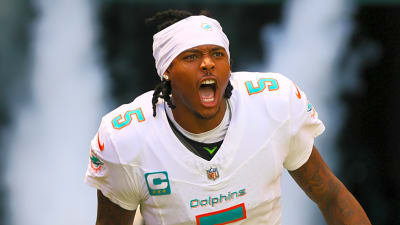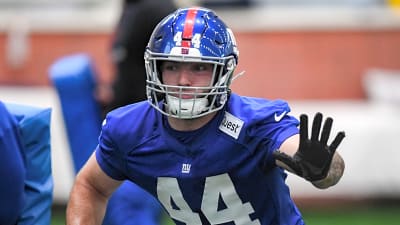An all-Black Rodeo that teaches the forgotten history of Black cowboys and cowgirls while giving the next generation of Western Sports athletes new opportunities is on the verge of being banned in Los Angeles.
The Bill Pickett Invitational Rodeo (BPIR), marking its 40th anniversary in 2024, won’t be celebrating in the city of Los Angeles if Councilmember Bob Blumenfield has his way.
Blumenfield has drafted regressive legislation to be voted on Tuesday based on the false premise that rodeos like BPIR as well as PBR (Professional Bull Riders) events are allegedly “inhumane.”
“It’s all based on a lie – that we allegedly mistreat rodeo animals when in fact we love our animals and have stringent rules and guidelines in place to ensure their safety and well-being,” says Valeria Howard-Cunningham, President, Bill Pickett Invitational Rodeo.
In rodeo events in California last year there were 13,311 animal exposures (animals in the arena during competition with the chance of injury) and 18 reported injuries. That is an injury rate of 0.0013 or 0.13%, according to PRCA.
The all-Black rodeo was born of necessity in the early 1980s, when Howard-Cunningham’s late husband, entertainment impresario Lu Vason, went to Cheyenne Frontier Days and noticed an absence of Black rodeo athletes competing.
To give these athletes a platform, Vason created a rodeo just for them. When Vason passed in 2015, Howard-Cunningham took the reins.
To see a Bill Pickett rodeo is to witness generations coming together in what is as much cultural celebration as athletic competition. After all, the rodeo was named for a man born to a former slave in 1870, who invented the discipline known as steer wrestling and became a popular performer touring the world. BPIR has been effective in recognizing and honoring the past while creating new history.
In the Los Angeles area, BPIR rodeos have become a staple for the city and its surrounding communities, entertaining sold-out arenas for decades.
After all she’s fought for, all the naysayers she’s quieted to keep Vason’s dream alive, after all the blood, sweat and tears spent bringing the community together and sharing history in a safe, fun and entertaining family environment, and then over the past two years participating in meetings with more than a dozen LA City Council members to share how her rodeo educates, inspires, and gives hope to younger generations while educating them on animal care, it’s nearly surreal for Howard-Cunninham to see her rodeo on the verge of being banned in large, progressive American city.
“Look at what’s at stake here,” Howard-Cunningham said. “We have our events for the Black community and all fans, the Charros events for the Hispanic communities and all fans, as well as Professional Bull Riders, where more than a third of the competitors are brown-skinned Brazilians. Banning these inclusive events is akin to eliminating part of who we are. It’s an unnecessary and culturally insensitive removal of things that celebrate and provide heritage, hope and inspiration to our communities.”
Howard-Cunningham tells the story of Isaiah, a 7-year-old at one of her Memphis rodeos a few years ago.
“As he walked closer to the area, I saw his eyes get as big as saucers,” she said. “A big smile came to his face, he put his little hands on his hips, and exclaimed; “Oh my, there are real Black Cowboys and Cowgirls.” I stood there in tears, because I knew his life perspective had been forever changed. He now knew a new reality.
“That little boy can be an inspiration for all of us. He can now aspire to be a Cowboy if he wants to, or to attend or participate in a rodeo with people who look like him. He can share his experience with his friends and become a change agent for our true history.”
The Los Angeles City Council must not like little boys like Isiah.
Or generational sporting events of joy, inspiration, and self-esteem.
In Las Vegas in June 2021, Kortnee Solomon, who’s been atop a horse since she was three months old, rode in the Bill Pickett rodeo alongside Carolyn Carter, a 61-year-old great grandmother who’s been with the tour since its founding.
“The Bill Pickett rodeo is family. It’s people connecting with one another,” said legendary actor Obba Batatunde, one of the co-Grand Marshals who rode horses onto the dirt at the MGM Grand Garden Arena to start the Las Vegas event broadcast on CBS Sports on Juneteenth. “And it’s an important education that Black cowboys exist just like everyone else in the American lexicon and were important in contributing to the development of this country.”
Along with Batadunde, James Pickens Jr., Glynn Turman, and Reginald Dorsey launched the Vegas event on horseback. Lu and Valeria keenly understood the power of these popular Hollywood figures, accomplished horsemen in their own right, a living embodiment of the melting pot of the American Cowboy.
“As a result of this rodeo, youngsters learn about their history, where they come from and how our forefathers contributed to this country,” said Turman, best known for his roles on the prime-time soap opera Peyton Place, the coming-of-age film Cooley High, and television shows A Different World and The Wire.
BPIR also has an alliance with PBR, including a residency at Cowtown Coliseum in Fort Worth, the site of the leading bull riding organization’s first event in 1993 and a place where a large statue of the great Bill Pickett stands outside.
Howard-Cunningham’s fear is that what happens in Los Angeles may not stay in Los Angeles.
If politicians in other cities are similarly incurious about the care of the animal athletes and insensitive to the cultures of the rodeo’s fans and participants, they could also be poisoned by misinformation.
She is nearly brought to tears again, but unlike those tears of joy in recounting little Isiah’s breakthrough, this time it is in discussing Tuesday’s legislation that may cancel rodeos in the city Los Angeles.
“Why remove something inspirational, culturally embracing, and educational from Los Angeles under completely false premises?” she asks. “Sometimes, I just ask myself, Is this really happening? In 2023?”
She says it’s important to defeat this damaging legislation now. Fans can help by contacting City Council members to make their voices heard. Whether a Western Sports fan or just concerned with duplicitous legislative overreach, anyone can submit a public comment on the record opposing the rodeo ban ordinance by going to this website.
Hollywood has yet to tell the complete story of Black cowboys.
The history books have left out Black cowboys.
It would be a tragedy for the LA City Council to now do their part to cancel Black cowboys.
More must-reads:
- Max Muncy sets wild mark in Dodgers' latest win
- Travis Hunter sets new NFL record with his rookie contract
- The 'Most home runs in a season by MLB franchise' quiz
Breaking News
Trending News
Customize Your Newsletter
 +
+
Get the latest news and rumors, customized to your favorite sports and teams. Emailed daily. Always free!








